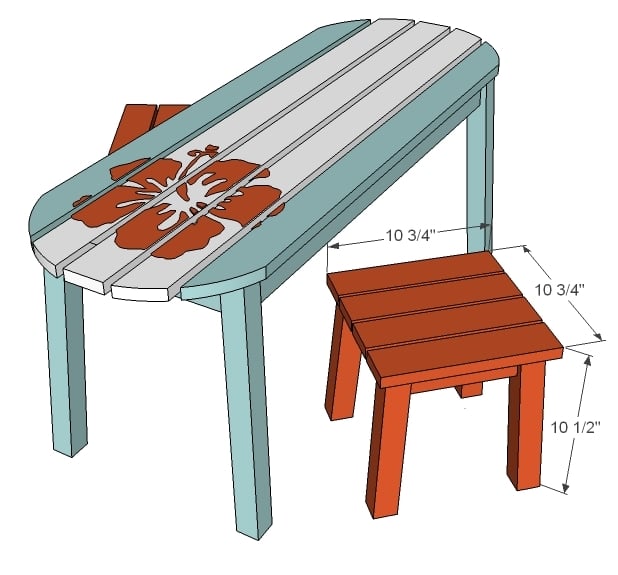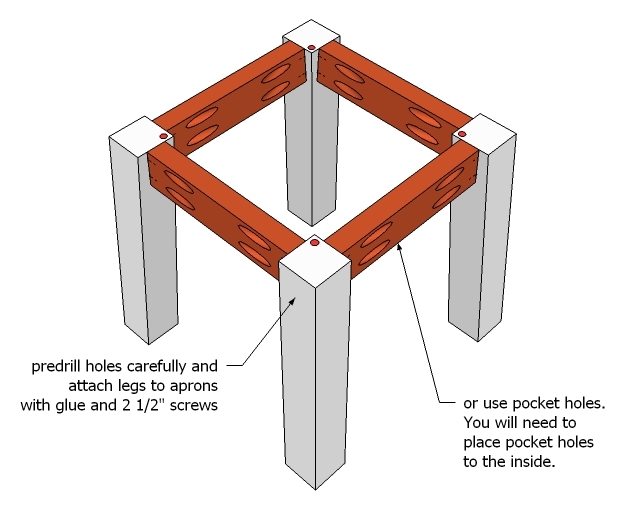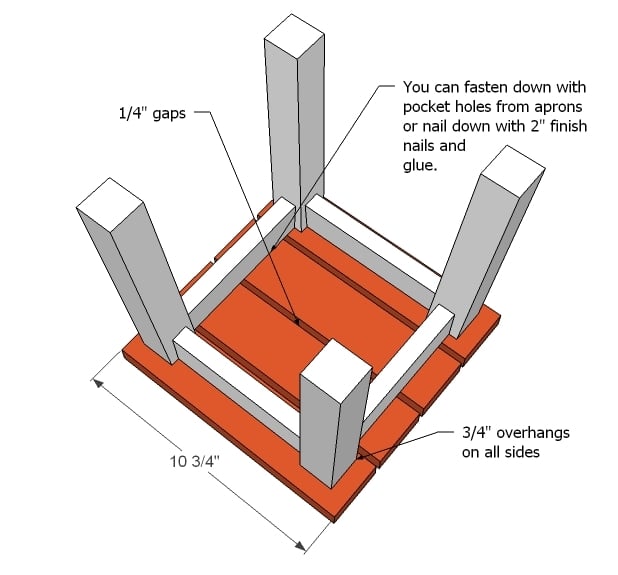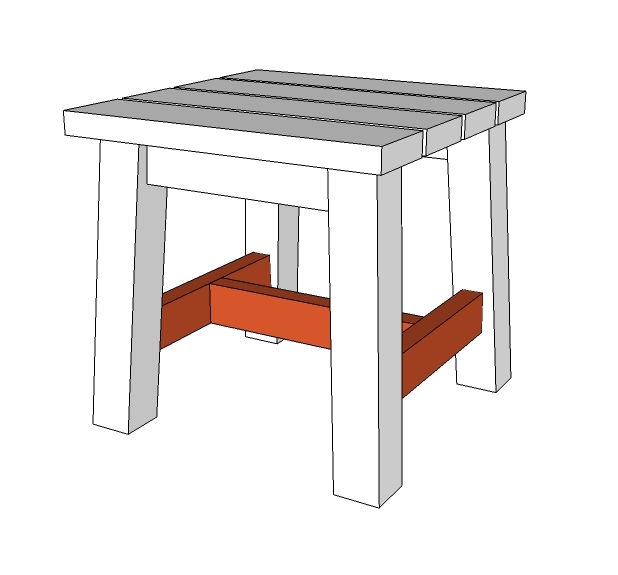
Bench seats for little ones to take to the beach. Works with the Surf Table.

Preparation
1 - 2x2 @ 4 feet long
1 - 1x3 @ 8 feet long
4 - 2x2 @ 9 3/4" (Ends cut at five degrees off square with a five degree bevel, ends parallel to each other)
4 - 1x3 @ 6 1/2" (Aprons - both ends cut at 5 degrees off square, NOT parallel to each other)
4 - 1x3 @ 10 3/4" (Seat Boards)
Please read through the entire plan and all comments before beginning this project. It is also advisable to review the Getting Started Section. Take all necessary precautions to build safely and smartly. Work on a clean level surface, free of imperfections or debris. Always use straight boards. Check for square after each step. Always predrill holes before attaching with screws. Use glue with finish nails for a stronger hold. Wipe excess glue off bare wood for stained projects, as dried glue will not take stain. Be safe, have fun, and ask for help if you need it. Good luck!
Instructions
Step 2
Attach aprons to legs as shown above. You can use either the Kreg Jig or just screws and glue.
It is always recommended to apply a test coat on a hidden area or scrap piece to ensure color evenness and adhesion. Use primer or wood conditioner as needed.

















Comments
ToppyFeahFeawre (not verified)
Wed, 05/16/2012 - 15:41
tablica
[url=http://www-tablica.pl]tablica[/url] tablica ogloszenia tresc temat ogloszen fajna strona